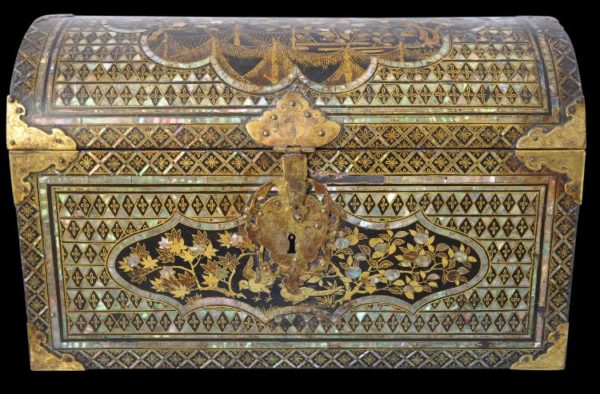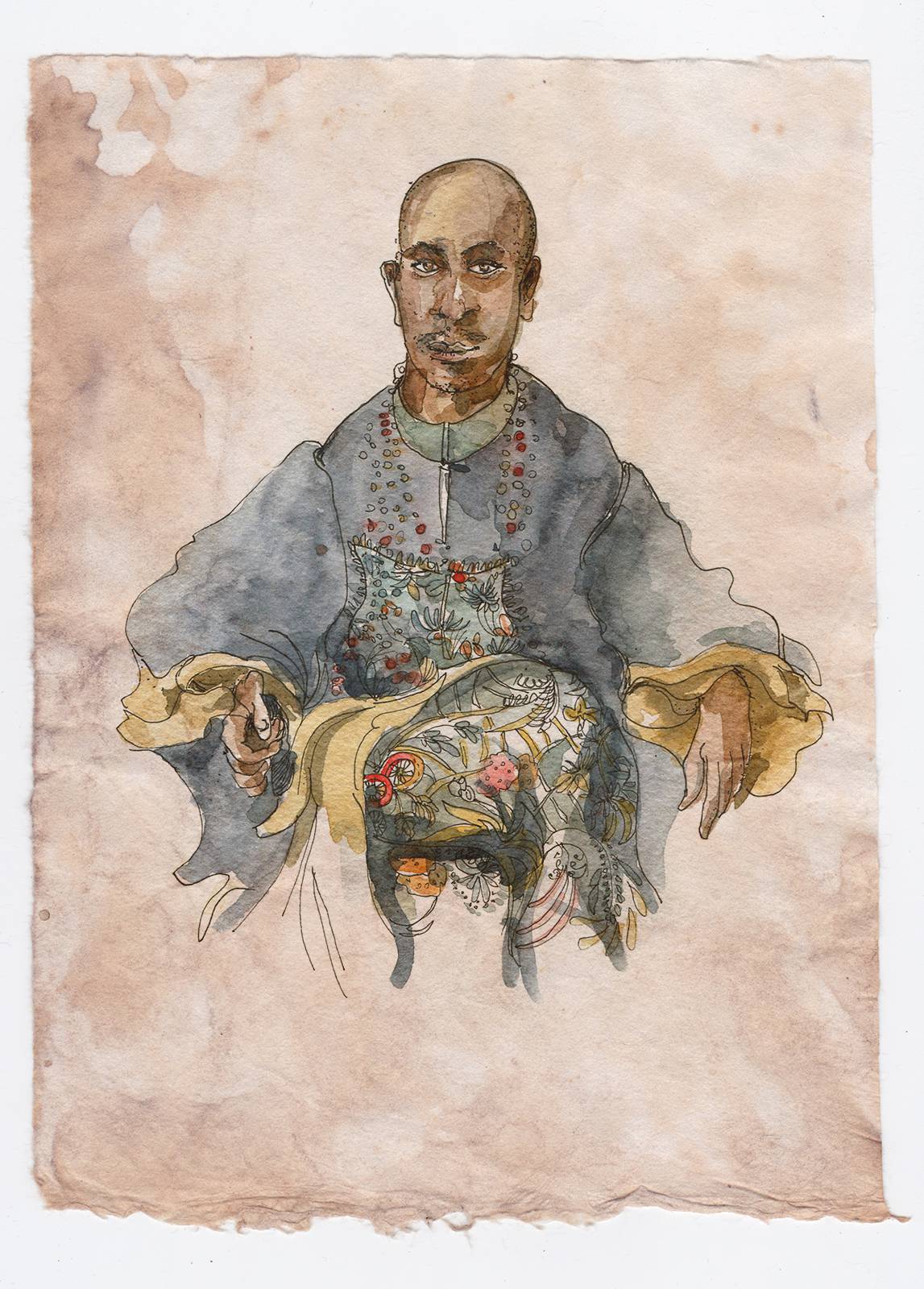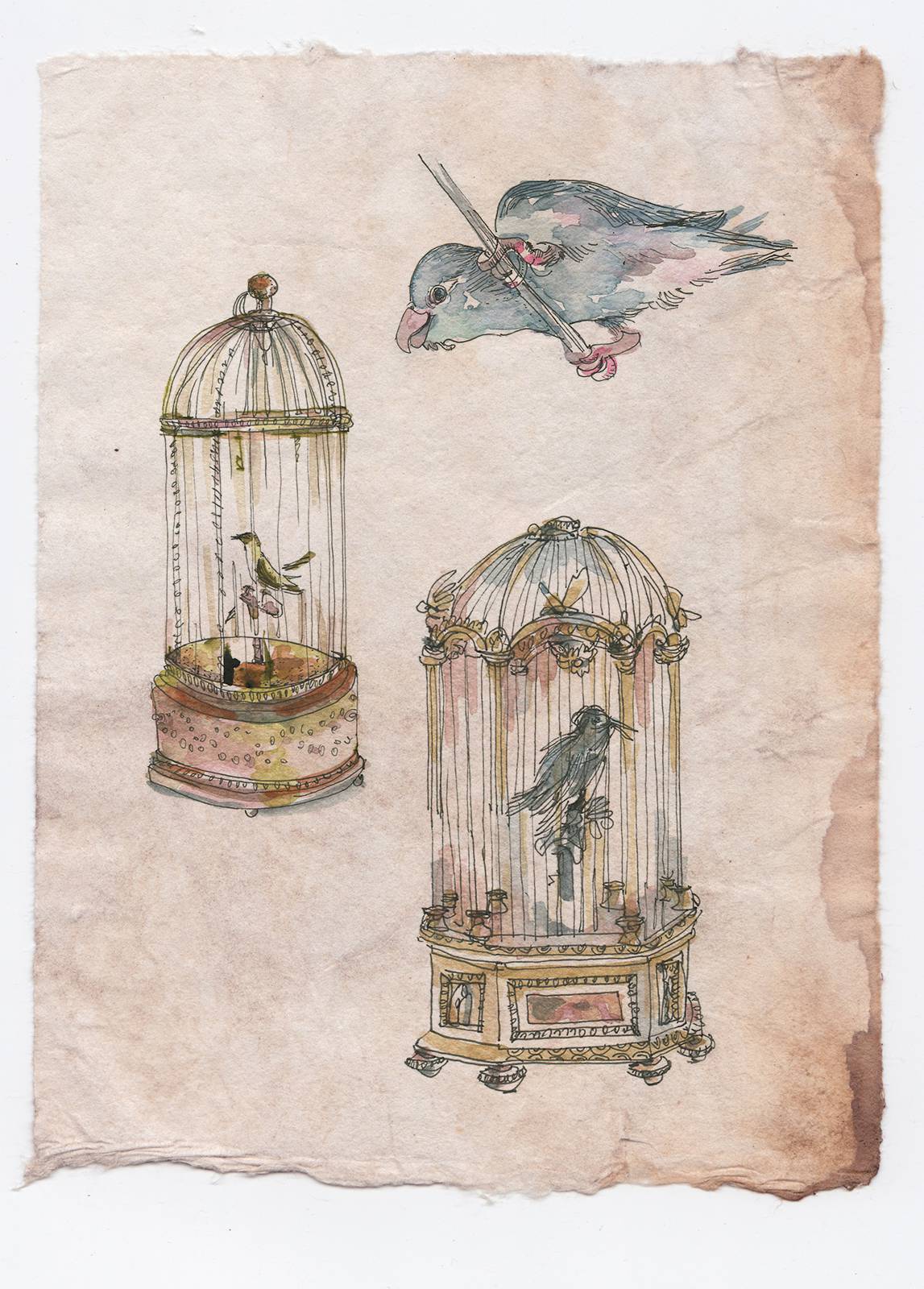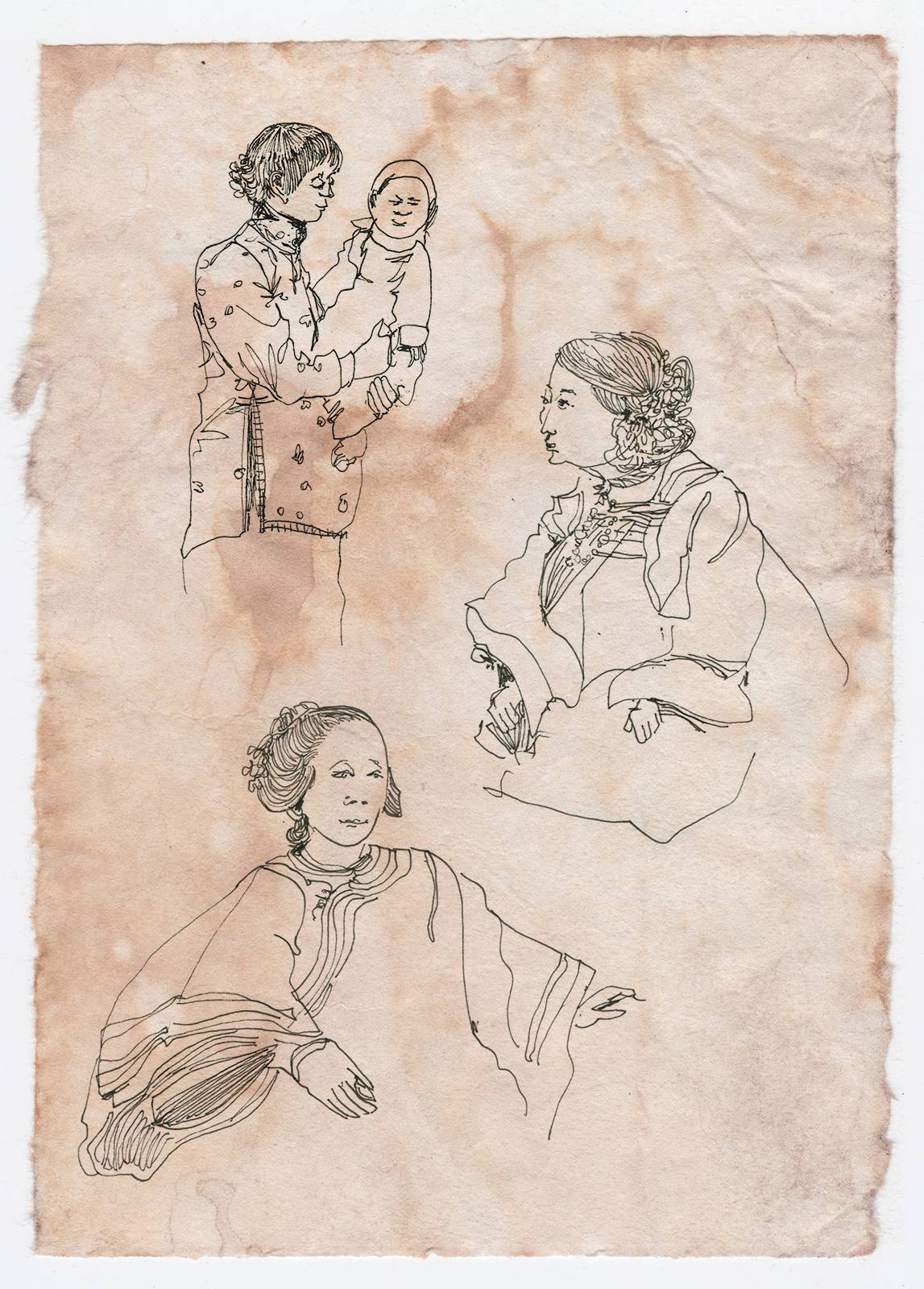I happened to meet an African here, Luis Menezes. He has collected great power as a trader and broker. He speaks Chinese and Portuguese; the city administrators and functionaries quietly trust him with all manner of delicate tasks and trade negotiations with the foreigners. Upon our arrival, he sent word that he would like to meet me, so on the agreed day we went up to his home.
Menezes has a great house; the main rooms hold colorful birds in cages. He told me their names, over and over, but I could not note them down. What surprised me the most, however, was his staff. Menezes had Japanese and Korean slaves throughout his home. To see an African so wealthy like this in China—even the men accompanying me to the house could not believe it at first. From what I can gather, this arrangement is uncommon, but not unknown.

Namban Mother-of-Pearl Inlaid Lacquer Coffer made for the Portuguese Market
This coffer, made in Japan towards the end of the sixteenth century specifically for the Portuguese market, is a fine example of Namban lacquerware. Often such coffers were used in monasteries to house relics associated with Saints.
Read moreThe two of us spoke for some time, throughout the afternoon. Our conversation was mostly about trade with Japan. He implored me to acquire certain items for him, in addition to the traders’ regular invoiced goods from Japan. His wife Tiao Chan, a Chinese, was particularly desirous of an inlaid box decorated with peacocks and birds. Menezes had not been able to find a Japanese one of sufficient quality for her in Macao. I will see what I can do to help them in Nagasaki, and expect the same on our return trip.
The man has not visited Japan himself; he is intelligent enough to leave dangerous sea voyages to fools like me.
Tiao Chan displayed much keen knowledge of Japanese customs and bits of language, teaching me much about what to expect and how to prepare my men. It impressed me greatly. No doubt much of it came from their servants and business dealings; her other motivations were not clear to me. I spent little time in their household, and know only that she is a force of her own in their small empire.


